Abstract
The fact that T cell-dependent activation of mast cells occurs in delayed-type hypersensitivity led us to investigate whether a T cell product could mimic some of the functions of IgE. We report that 24- or 48-hr cultures of T cells from mice immunized optimally for delayed-type hypersensitivity resulted in release of an antigen-binding factor that transferred the ability to elicit an antigen-specific immediate hypersensitivity-like skin reaction in normal recipients. The responsible factor was concentrated and purified by affinity chromatography on antigen columns and was distinguished from immunoglobulin by several criteria: (i) it was released by purified T cells (anti-immunoglobulin plate depletion of B cells); (ii) it expressed no known antigenic markers of immunoglobulins (enzyme-linked immunosorbant direct binding assay); (iii) it had a molecular weight of 70,000 or less (sucrose gradient ultracentrifugation); and (iv) it had serological markers associated with antigen-specific T cell factors from other experimental systems. We suggest that, at sites of delayed-type hypersensitivity, antigen-reactive T cells may release antigen-specific factors that lead to mast cell activation and release of vasoactive amines, which is required for elicitation for these responses.
Full text
PDF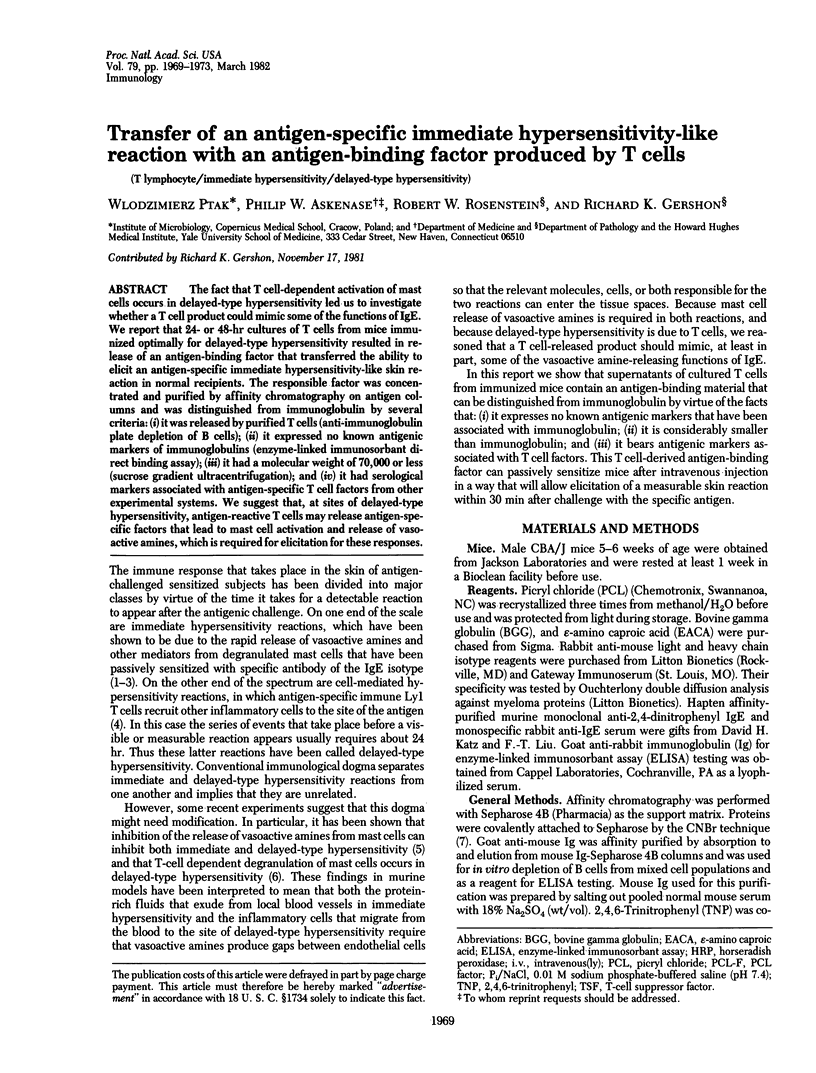
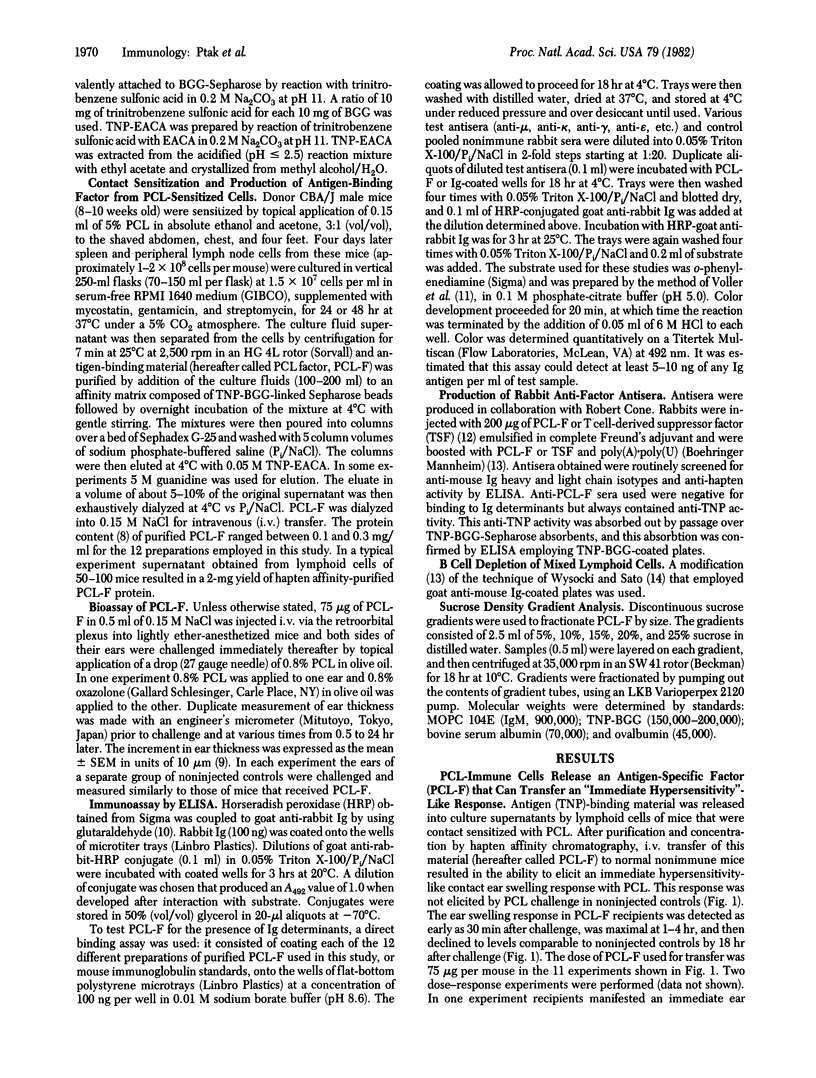
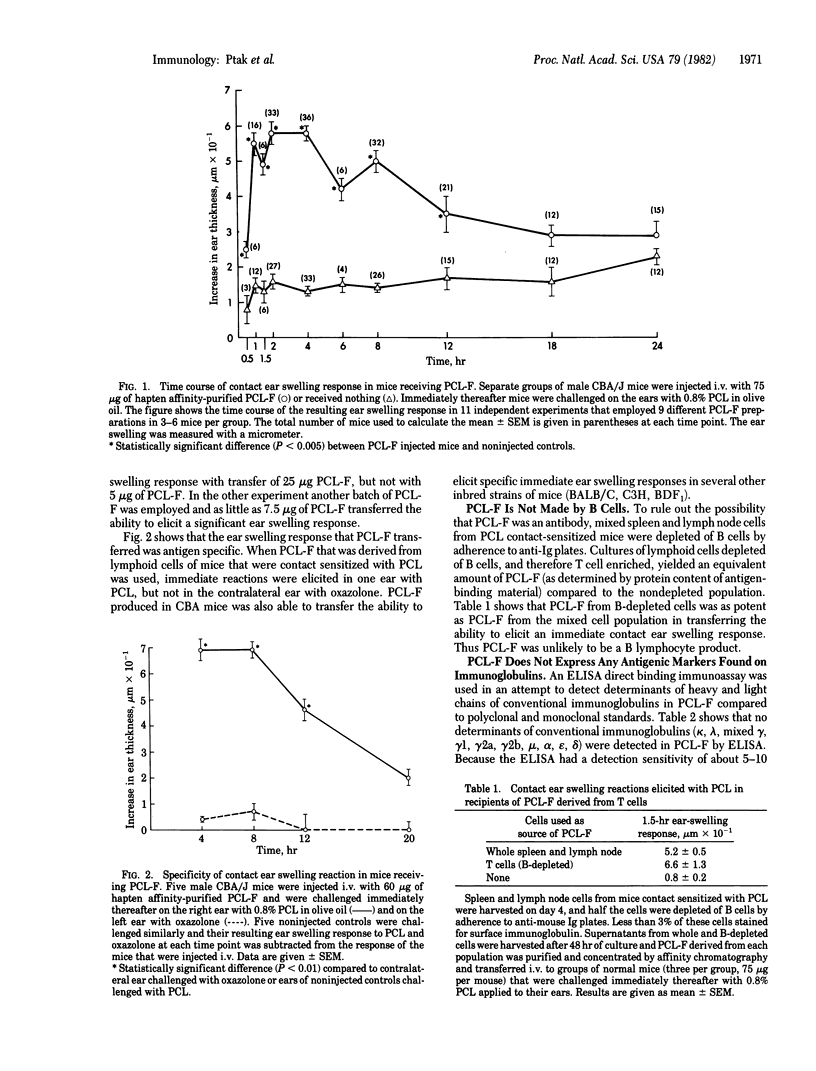
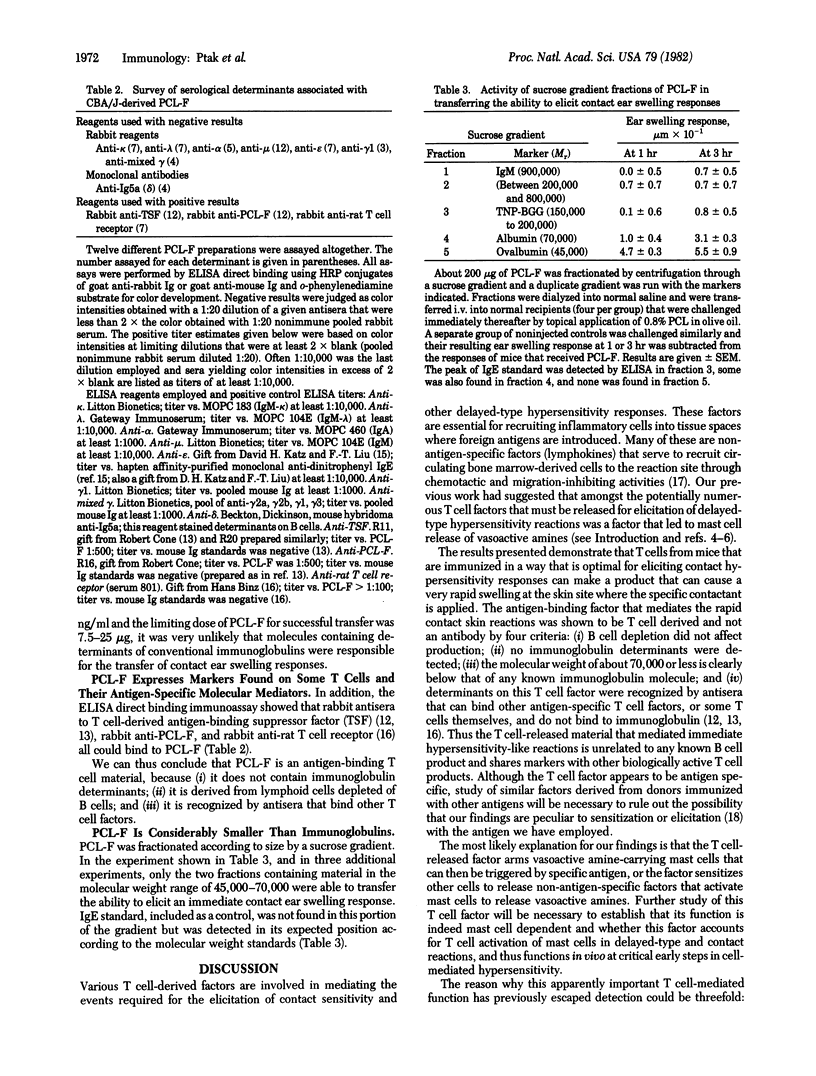
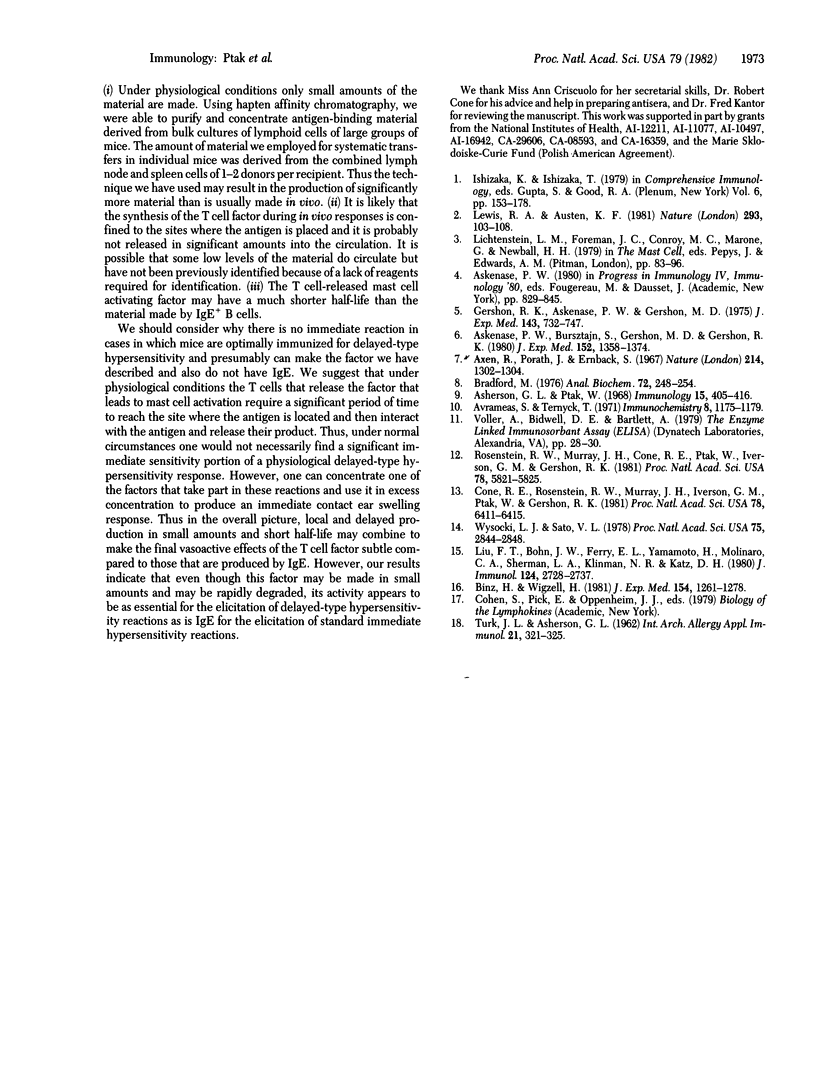
Selected References
These references are in PubMed. This may not be the complete list of references from this article.
- Asherson G. L., Ptak W. Contact and delayed hypersensitivity in the mouse. I. Active sensitization and passive transfer. Immunology. 1968 Sep;15(3):405–416. [PMC free article] [PubMed] [Google Scholar]
- Askenase P. W., Bursztajn S., Gershon M. D., Gershon R. K. T cell-dependent mast cell degranulation and release of serotonin in murine delayed-type hypersensitivity. J Exp Med. 1980 Nov 1;152(5):1358–1374. doi: 10.1084/jem.152.5.1358. [DOI] [PMC free article] [PubMed] [Google Scholar]
- Avrameas S., Ternynck T. Peroxidase labelled antibody and Fab conjugates with enhanced intracellular penetration. Immunochemistry. 1971 Dec;8(12):1175–1179. doi: 10.1016/0019-2791(71)90395-8. [DOI] [PubMed] [Google Scholar]
- Axén R., Porath J., Ernback S. Chemical coupling of peptides and proteins to polysaccharides by means of cyanogen halides. Nature. 1967 Jun 24;214(5095):1302–1304. doi: 10.1038/2141302a0. [DOI] [PubMed] [Google Scholar]
- Binz H., Wigzell H. T cell receptors with allo-major histocompatibility complex specificity from rat and mouse. Similarity of size, plasmin susceptibility, and localization of antigen-binding region. J Exp Med. 1981 Nov 1;154(5):1261–1278. doi: 10.1084/jem.154.5.1261. [DOI] [PMC free article] [PubMed] [Google Scholar]
- Bradford M. M. A rapid and sensitive method for the quantitation of microgram quantities of protein utilizing the principle of protein-dye binding. Anal Biochem. 1976 May 7;72:248–254. doi: 10.1006/abio.1976.9999. [DOI] [PubMed] [Google Scholar]
- Cone R. E., Rosenstein R. W., Murray J. H., Iverson G. M., Ptak W., Gershon R. K. Characterization of T-cell surface proteins bound by heterologous antisera to antigen-specific T-cell products. Proc Natl Acad Sci U S A. 1981 Oct;78(10):6411–6415. doi: 10.1073/pnas.78.10.6411. [DOI] [PMC free article] [PubMed] [Google Scholar]
- Gershon R. K., Askenase P. W., Gershon M. D. Requirement for vasoactive amines for production of delayed-type hypersensitvity skin reactions. J Exp Med. 1975 Sep 1;142(3):732–747. doi: 10.1084/jem.142.3.732. [DOI] [PMC free article] [PubMed] [Google Scholar]
- Lewis R. A., Austen K. F. Mediation of local homeostasis and inflammation by leukotrienes and other mast cell-dependent compounds. Nature. 1981 Sep 10;293(5828):103–108. doi: 10.1038/293103a0. [DOI] [PubMed] [Google Scholar]
- Liu F. T., Bohn J. W., Ferry E. L., Yamamoto H., Molinaro C. A., Sherman L. A., Klinman N. R., Katz D. H. Monoclonal dinitrophenyl-specific murine IgE antibody: preparation, isolation, and characterization. J Immunol. 1980 Jun;124(6):2728–2737. [PubMed] [Google Scholar]
- Rosenstein R. W., Murray J. H., Cone R. E., Ptak W., Iverson G. M., Gershon R. K. Isolation and partial characterization of an antigen-specific T-cell factor associated with the suppression of delayed type hypersensitivity. Proc Natl Acad Sci U S A. 1981 Sep;78(9):5821–5825. doi: 10.1073/pnas.78.9.5821. [DOI] [PMC free article] [PubMed] [Google Scholar]
- TURK J. L., ASHERSON G. L. Attempts to transfer contact sensitivity passively with subcellular fractions in the guinea pig. A study of the specificity of such reactions. Int Arch Allergy Appl Immunol. 1962;21:321–325. doi: 10.1159/000229348. [DOI] [PubMed] [Google Scholar]
- Wysocki L. J., Sato V. L. "Panning" for lymphocytes: a method for cell selection. Proc Natl Acad Sci U S A. 1978 Jun;75(6):2844–2848. doi: 10.1073/pnas.75.6.2844. [DOI] [PMC free article] [PubMed] [Google Scholar]


